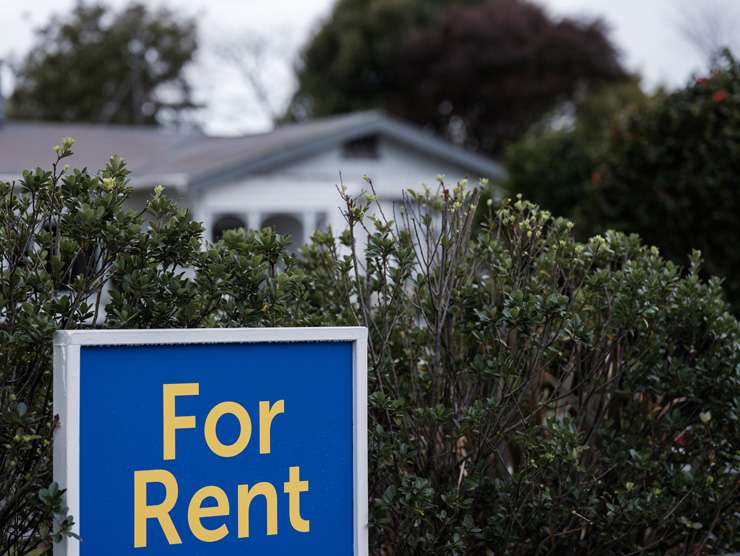Turning the key in the lock of your own home for the very first time is an exciting moment. But does owning your own home make you happier?
The answer can be “yes” and “no”. It’s a complex question, say academics, and difficult to strip back down to fundamentals.
At the most basic level, owning a home gives the homeowners security in knowing if they pay the mortgage they can’t be evicted by a landlord. They can decorate the home in their own choice of colours, upgrade the kitchen, renovate, and even put Blu Tack on the walls.
There are other benefits. Suburbs with higher home ownership tend to have better schools and less crime. Owning a home usually leads to capital gain over time, which can help homeowners build up retirement savings. It’s also easier to live on New Zealand Super if a homeowner owns the home without a mortgage.
Start your property search
University of Auckland economics professor Robert MacCulloch says the deeper answer about whether owning a home makes people happier is not at all straightforward.
“If you looked at homeowners in this country, probably they are happier. The crux of this is people who own homes are richer. So you have to control for your income, and for wealth. That’s what makes it a very delicate issue.”
MacCulloch, one of New Zealand’s leading experts on money and wellbeing, cites a cognitive bias known as endowment effect, coined by Nobel prize-winning psychologist Daniel Kahneman. The endowment effect is a bias where humans tend to attach more value to items simply because they own them.

Professor Robert MacCulloch says people who own homes tend to be richer. Photo / Supplied
Conversely, many wealthy people choose to rent. They may not want to own a home in every location they stay in regularly. Some prefer high-end rentals. Famously, multi-billionaire Elon Musk lived in a tiny rented home, worth less than some models of Tesla.
The question of happiness and housing has been researched from many angles. But the number one reason that New Zealanders own homes, says Emeritus Professor Simon Kemp of the University of Canterbury, is “they invest in real estate because that’s what other New Zealanders do.”
The academic literature, says Kemp, suggests that often home ownership does result in increased happiness. But not every study agrees.
“Here in New Zealand the obvious question is that if you are in New Zealand at present, if you own a house, you're more likely to have more money. And on average people with higher incomes and more money are happier. But it’s not easy to disentangle.”
Research – both internationally and in Aotearoa – consistently finds that homeowners are more satisfied with their lives, have better well-being and report greater quality of life than renters, says Victoria University of Wellington senior lecturer in health, Ágnes Szabó.
“Even when we take into account people’s financial situation and socioeconomic position, we see the well-being advantage of homeowners.
“One explanation for these psychological benefits of homeownership is the ‘safe-haven hypothesis’. It is the idea that a house not only provides shelter and physical safety, but also fulfils our need for psychological security. Homeowners are more likely to develop emotional bonds to their house and see it as a safe haven: it’s a place where they find privacy and refuge from the stressors of life.”
Being a homeowner also gives people more control over their housing, she says. “They have freedom over how they decorate their house and can make modifications to their homes to fit their needs and lifestyle. In addition, those owning their home tend to have a greater sense of belonging and feel that they are part of the wider community.

Finding a rental in a tight market can be stressful. Photo / Ted Baghurst
“In contrast, renters are more likely to experience psychological stress due to their lack of secure housing tenure and reduced sense of control over their housing decisions.”
Importantly, says Szabó: “I see from my research with older New Zealanders that these effects increase with age. By the time people arrive at an older age, the disparities between renters and homeowners in terms of their health and well-being are quite substantial. The stress associated with a lifetime of renting has a clear impact on people’s health and well-being over time.”
On the other hand, Kemp refers to work by Swiss-based academic Alois Stutzer, which does throw assumptions about homeownership and happiness up in the air.
Stutzer and Reto Odermatt, from the Faculty of Business and Economics, Center for Research in Economics and Well-Being (CREW) at the University of Basel, question whether the dream of home ownership rests upon biased beliefs.
“The belief that home ownership makes people happy is probably one of the most widespread intuitive theories of happiness,” they say. “However, whether it is accurate is an open question,” the pair concluded. They found that people potentially relied on biased beliefs in their decision-making process and overestimated their future life satisfaction just before and just after moving into their new home.
Owning a home does come with stresses such as maintenance, and paying the mortgage, rates, insurance and other costs. No longer is there a landlord to call if the toilet is blocked. What’s more, owning a home can be stressful. What if someone doesn’t like their neighbours?
Although house prices typically rise, in times like 2022/2023 homeowners may have concerns that falling house prices will result in negative equity and losing money on paper - or for real if they have to sell.
Even the purchase process can be very stressful, as buyers in Covid times found. Finding the perfect home just to be outbid at auction is a huge stressor.












































































